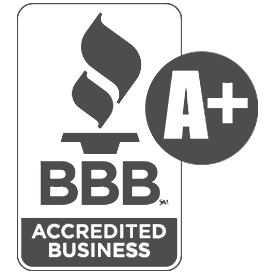Assumable Mortgages: A Unique Opportunity for Buyers and Sellers
In the ever-changing real estate landscape, both buyers and sellers are looking for ways to gain an edge. One underutilized option is the assumable mortgage—a financing feature that lets buyers take over an existing home loan from the seller. This transfer can provide significant advantages, particularly in a high-interest-rate environment. Whether you’re buying or selling, understanding assumable mortgages can unlock unique opportunities. Let’s dive into how they work, who benefits, and what to consider.
What Exactly Is an Assumable Mortgage?
An assumable mortgage allows a homebuyer to "inherit" the seller’s current mortgage, including the remaining balance, interest rate, and loan terms. This means the buyer bypasses the process of securing a completely new loan and instead steps into the seller’s shoes, taking over their existing financing.
Key Features:
-
Only specific loan types, such as FHA, VA, and USDA loans, offer assumable options.
-
The buyer must meet the lender’s approval criteria to assume the loan.
-
If the property’s value exceeds the remaining mortgage balance, the buyer must cover the difference, either in cash or through additional financing.
How Assumable Mortgages Work
Here’s a simplified look at the process:
-
Seller Offers the Mortgage for Assumption
If the seller’s mortgage is assumable, they can market this feature as part of their home sale. A lower interest rate or favorable terms make the property more appealing to buyers. -
Buyer Applies to Assume the Loan
The buyer must apply to the lender for approval. This includes providing proof of income, creditworthiness, and other financial details. -
Equity Adjustment
If the home’s current market value is higher than the outstanding loan balance, the buyer must pay the difference as equity. For instance, if the home is worth $300,000 and the seller’s remaining loan balance is $250,000, the buyer would need $50,000 to bridge the gap. -
Transfer of Loan Responsibility
Once the lender approves the buyer, the loan transfers, and the buyer assumes all future payments and obligations.
Why Buyers Should Consider Assumable Mortgages
-
Significant Interest Rate Savings
In today’s high-rate environment, assumable mortgages allow buyers to take advantage of older loans with lower interest rates. For example, if the seller locked in a 3% rate compared to today’s 6%, the savings over time could be substantial. -
Lower Closing Costs
Traditional mortgage processes often come with hefty closing costs, including origination fees and points. With an assumable mortgage, these costs are typically lower. -
Simplified Financing
By assuming an existing loan, buyers can avoid starting from scratch with a new loan application process, especially if the terms and payments align with their financial goals.
Benefits for Sellers Offering an Assumable Mortgage
-
Increased Buyer Appeal
An assumable mortgage can set a property apart in a competitive market. For buyers facing high rates, the opportunity to assume a low-rate loan is incredibly attractive. -
Faster Transactions
Buyers may be more motivated to act quickly when they see the financial advantages of an assumable mortgage, resulting in smoother negotiations. -
Potential for Higher Offers
Buyers may be willing to pay more for a property if it comes with a desirable loan attached, helping sellers maximize their sale price.
Considerations for Buyers and Sellers
For Buyers:
-
Equity Requirements: If the seller has built significant equity, buyers must have the resources to cover it upfront or secure secondary financing.
-
Loan Eligibility: Not all loans are assumable, and conventional loans typically exclude this feature unless explicitly allowed.
-
Approval Process: Buyers must meet the lender’s financial criteria, which can add complexity.
For Sellers:
-
Liability Risks: In some cases, sellers may remain partially liable if the buyer defaults, unless a formal release is granted by the lender.
-
Limited Buyer Pool: Not all buyers can cover the equity gap, which may narrow the market for the property.
Is an Assumable Mortgage Right for You?
Assumable mortgages aren’t for everyone, but they shine in specific situations:
-
In a High-Rate Market: Buyers can lock in lower rates, while sellers can market their homes as a financially appealing option.
-
Military Buyers and Sellers: VA loans are often assumable, making this option particularly valuable for military families.
-
Buyers with Access to Cash: Buyers who can cover equity gaps stand to benefit the most from an assumable mortgage.
FAQs About Assumable Mortgages
-
Are all mortgages assumable?
No, only certain loan types, such as FHA, VA, and USDA loans, typically include an assumable feature. -
Can a buyer negotiate the equity payment?
Yes, in some cases, sellers may be willing to negotiate the price to make the deal more accessible. -
What happens to the original seller’s liability?
Liability depends on the loan agreement. Sellers should request a release of liability from the lender to ensure they’re no longer responsible for the loan.
Conclusion
An assumable mortgage can be a win-win for buyers and sellers, offering financial savings and a smoother transaction process. For buyers, the chance to lock in a lower interest rate is invaluable in today’s market. For sellers, offering an assumable mortgage can make a property more competitive. If you’re curious about this unique option, Homelend Mortgage is here to guide you through every step, ensuring you make an informed decision that aligns with your financial goals.




